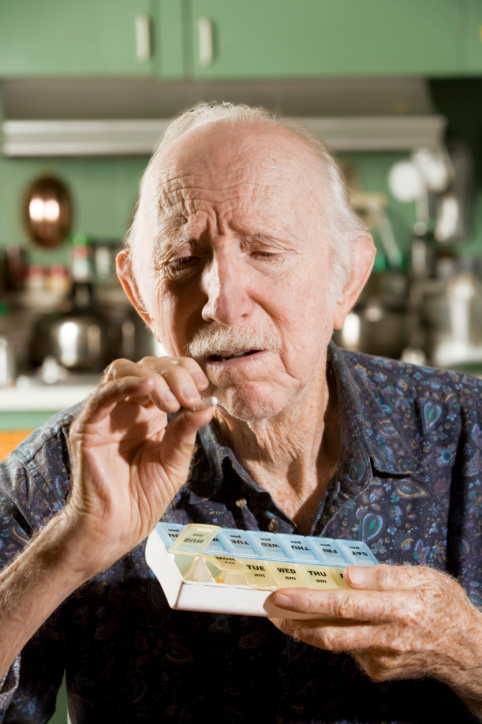 While an elusive cure for Alzheimer’s is being endlessly but unsuccessfully pursued in laboratories around the world, researchers continue to look for treatments that will at least slow the progression of the brain-wasting disease.
While an elusive cure for Alzheimer’s is being endlessly but unsuccessfully pursued in laboratories around the world, researchers continue to look for treatments that will at least slow the progression of the brain-wasting disease.
Now, in a study published in the Journal of the American Medical Association, U.S. researchers say they have found a potential way to prevent mild to moderate Alzheimer’s symptoms from worsening. This treatment doesn’t involve a complex drug created in a pharmaceutical lab. Rather, it’s comprised of a substance with which we are all familiar and that many of us take in supplement form on a regular basis. The new Alzheimer’s preventative medicine is none other than vitamin E.
The study was conducted by the U.S. Department of Veteran Affairs and involved over 600 older veterans. According to the researchers, high doses of vitamin E helped preserve some of the veterans’ daily living skills. These skills included making meals, getting bathed and dressed in the morning, and engaging in social conversation with others. This delay in the loss of life skills held anywhere from six months to two years when taking the vitamin E.
This is the first time any treatment has been found that helps stave off the progression of Alzheimer’s, at least for a while. Even an additional year or two of independent living can mean a great deal to an older adult. Most older adults would prefer to stay in their own homes rather than be admitted to a facility like a nursing home where they might lose most or all of their autonomy.
For the study, 613 veterans (mostly men with an average age of 79 years) with mild to moderate Alzheimer’s were recruited from 15 Veterans’ Affairs centers across the U.S. The study participants were already taking Alzheimer’s medication, such as Aricept, Exelon or Razadyne. The participants were divided into four groups: the first group was given vitamin E supplements, the second a dementia medicine called memantine, the third both vitamin E and memantine, while the fourth group acted as placebo and were given fake pills.
After two years of follow up, the group taking vitamin E alone had an impressive 19% lower rate of decline in daily living skills compared to the placebo group. The drug memantine appeared to usher in no beneficial effects whatsoever.
While this is definitely positive news for those with the early stages of Alzheimer’s, the research team did caution that vitamin E did not seem to improve thinking skills.
How does vitamin E help a brain under siege by Alzheimer’s? The researchers aren’t sure, but they do know that vitamin E is a potent antioxidant and may help protect brain cells from further damage for a period of time. Vitamin E functions like other antioxidants found in fruits and vegetables, red wine, green tea, dark chocolate, and even coffee. Vitamin E is found mostly in whole grains, nuts, seeds, vegetable oils and leafy greens. For the trial, the research team administered a synthetic form of vitamin E called alpha-tocopherol at a dose of 2,000 international units (IU) per day.
Should you go out and start taking large doses of vitamin E to protect your brain? The answer to that question is no, unless your doctor recommends it. This is because vitamin E can interfere with other drugs such as cholesterol medication and blood thinners. However, there’s definitely no harm in asking your doctor about taking a vitamin E supplement and taking it in moderation.
Sources:
Dysken, M.W., et al., “Effect of vitamin E and memantine on functional decline in Alzheimer disease: the TEAM-AD VA cooperative randomized trial,” JAMA. January 1, 2014; 311(1): 33-44.
Marchione, M., “Alzheimer’s hope: Vitamin E may slow decline in mild, moderate dementia, veterans study finds,” Canada.com web site, Jan. 2, 2014; http://www.canada.com/health/Alzheimers+hope+Vitamin+slow+decline+mild+moderate+dementia+veterans/9338460/story.html, last accessed Jan. 14, 2014.
